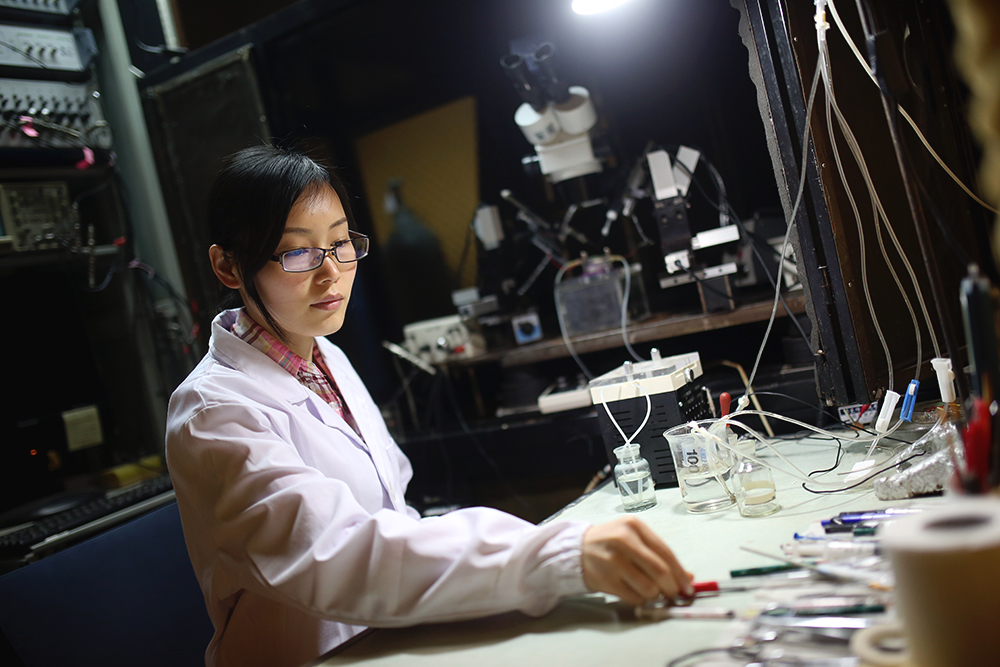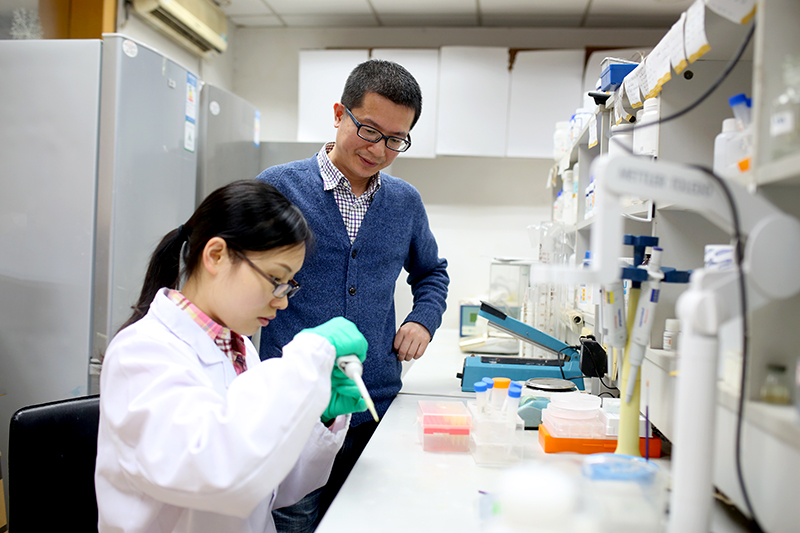Prof. Zhou Xiaoming of Key Laboratory of Brain Functional Genomics of Ministry of Education led his research team in making progress in the study of auditory plastic. They successfully found that environmental enrichment can enhance structural plasticity in the brain and thereby improve cognitive and behavioral function. Their research paper named "Environmental acoustic enrichment promotes recovery from developmentally degraded auditory cortical processing" was published in The Journal of Neuroscience on April 16.

Zhu Xiaoqing.
It has previously been shown that environmental enrichment can enhance structural plasticity in the brain and thereby improve cognitive and behavioral function. In their study, Prof. Zhou’s research team reared developmentally noise-exposed rats in an acoustic-enriched environment for 4 weeks to investigate whether or not enrichment could restore developmentally degraded behavioral and neuronal processing of sound frequency.
They found that noise-exposed rats had significantly elevated sound frequency discrimination thresholds compared with agematched naive rats. Environmental acoustic enrichment nearly restored to normal the behavioral deficit resulting from early disrupted acoustic inputs. Signs of both degraded frequency selectivity of neurons as measured by the bandwidth of frequency tuning curves and decreased long-term potentiation of field potentials recorded in the primary auditory cortex of these noise-exposed rats also were reversed partially. The observed behavioral and physiological effects induced by enrichment were accompanied by recovery of cortical expressions of certain NMDA and GABAA receptor subunits and brain-derived neurotrophic factor. These studies in a rodent model show that environmental acoustic enrichment promotes recovery from early noise-induced auditory cortical dysfunction and indicate a therapeutic potential of this noninvasive approach for normalizing neurological function from pathologies that cause hearing and associated language impairments in older children and adults.

Prof. Zhou Xiaoming instructs his student in the lab.
This study was mainly completed by Ph. D candidate Zhu Xiaoqing. It is another important progress that Prof. Zhou’s research team have made in the study of adults’ auditory plasticity since they published “Refining cortical representation of sound azimuths by auditory discrimination training” in The Journal of Neuroscience in 2013. Prof. Zhou’s research team have been engaging in the study of adults’ auditory plasticity in recent years and have published quite a few research papers in peer-reviewed journals including Nature Neuroscience、PNAS、Nature Communications and The Journal of Neuroscience.
Written by: Liu Jinyu

